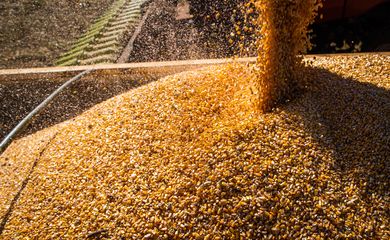Lula urges rationality from agribusiness sector

Brazilian President Luiz Inácio Lula da Silva said Thursday (Jun. 15) that rationality is necessary when it comes to agricultural and environmental policies. The agribusiness sector’s problem with the current government, he argued, is ideological in nature, and does not concern management strategies. Lula was interviewed this morning by radio stations in Goiás state.

The president stated he does not work to please specific sectors, but rather to bring about good conditions for all Brazilians—including agribusiness. In his previous administrations, he noted, the sector was greatly benefited, with resources and favorable credit conditions.
“I’m aware of what we did. I’m aware that their problem with us is ideological. It’s not a question of too much money in the Plano Safra. We’re going to make a good Plano Safra, because we want Brazilian agriculture to continue producing, to continue planting more and more and increasing exports,” said Lula. “What’s at stake is our attempt to recover the productive capacity in this country and raise it without deforesting or burning the Amazon Forest,” he added.
A total of 30 million hectares of degraded land must be recovered, he declared, in order to “double our agricultural production.”
He urged the sector to be rational, in an attempt to preserve the nation’s international policy. Lula recalled the French parliament vetoed the Mercosur–EU agreement yesterday (14) because it demands a change in Brazil’s behavior regarding agriculture. Approved in 2019 after 20 years of negotiations, the deal agreement is pending ratification by the parliaments of all 31 countries in both blocs before it may become effective.
“We need to be aware of the rationality that must prevail in our international policy. Yesterday, the French parliament said it would not vote on the Mercosur–EU agreement because of the amount of poison used in Brazilian agricultural products. We must take into account that being rational, taking care of good-quality agriculture, is a competitive need for Brazil, China, and France, as well as for the US, and Germany. And this is how I want to treat agribusiness,” said Lula.
He went on to highlight that the government’s efforts also involve small farmers whose food production goes directly to the table, citing the establishment of a minimum price policy for production. “These people also have to be treated with a lot of respect, because if one agribusiness may have an extraordinary amount of resources to produce commodities for us to export, another has an extraordinary courage to plant what we are going to eat,” he said.




